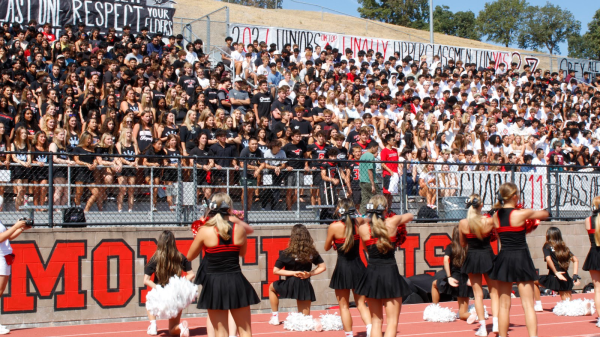Stop appropriating and start appreciating

Such costumes disrespect aspects of cultures and enhance stereotypes. In addition, cultural appropriation belittles the history of minorities and makes their culture an aesthetic.
Should we “cancel” somebody that is not black for wearing cornrows? A non-Japanese person for wearing kimonos? A non-Hispanic person for wearing a quechquémitl? The answer centers around the topic of cultural appropriation.
There is a difference between approaching a culture with a desire to learn and to broaden one’s perspective (cultural appreciation), versus utterly disrespecting the culture (cultural appropriation). I have witnessed cultural appropriation countless times. As social media flourishes, it is not uncommon to see people of various races and backgrounds take part in another culture. While I, as a Korean person, often appreciate when someone participates in Korean culture (for instance, enjoying Korean cuisine), other times I can’t help but wonder if their intentions were not to appreciate, but demean.
Cultural appropriation is partaking in a culture without understanding the history behind its food, clothing, traditions, etc., and using it solely for attention and personal benefit.
Throughout history, citizens around the globe have been appropriating culture. We can see many examples of this within sports. For instance, the Washington Redskins, an American football team, officially replaced their team name and mascot to the Washington Commanders after accepting criticism that having a Native-American mascot was offensive and the term “redskins” was derogatory. In Zack Stanton’s article, “How Native American Team Names Distort Your Psychology” published on July 16, 2020 for Politico Magazine, he cites research by Stephanie Fryberg, a psychology professor at the University of Michigan, relating stereotypes to mental health: “She found that exposing Native American teenagers to Native sports mascots decreased their self-esteem, lowered the achievement-related goals they set for themselves, and diminished both their sense of community worth and belief that their community can improve itself.”
Another common example of cultural appropriation is dressing up in another culture’s traditional clothes without fully grasping their significance.
“I always think about the time when Katy Perry performed [at a concert] with a mix of East Asian cultural signifiers,” said Samuel Eaton, an Ethnic Studies teacher at Monte Vista. “That in my mind is kind of harmful because as a white woman she doesn’t face any anti-Asian hate or racism, she can just [dress in a kimono] because it’s pretty.”
Using a culture purely for aesthetic purposes diminishes its value and creates a false perception of it. Similarly, dressing as a different race on Halloween or wearing costumes that sexualize a culture is often degrading and is the foundation for misconceptions. For instance, choosing to wear sexy “oriental” clothing intensifies the fetishization of Asians.
Cultural appropriation has been present for centuries for most undermine its effects and do not deem appropriation as discriminatory or racist. It is crucial to educate people of all races on the consequences of harmful appropriation.
“A general effect [of cultural appropriation] is an oversimplification of other people that can lead to harmful bigotry,” said Eaton.
Does this mean that people shouldn’t participate in cultures they don’t belong to? Absolutely not. It is vital for people to experience cultures outside of their own, but this experience has to be rooted primarily in an eagerness to learn. When you participate in another culture, you are the student. And as a student, it is imperative that you be open-minded about the cultures you partake in and the people that belong to it.

Alicia Kim is a senior in her fourth year as a journalist for The Stampede. In her spare time, she enjoys...






